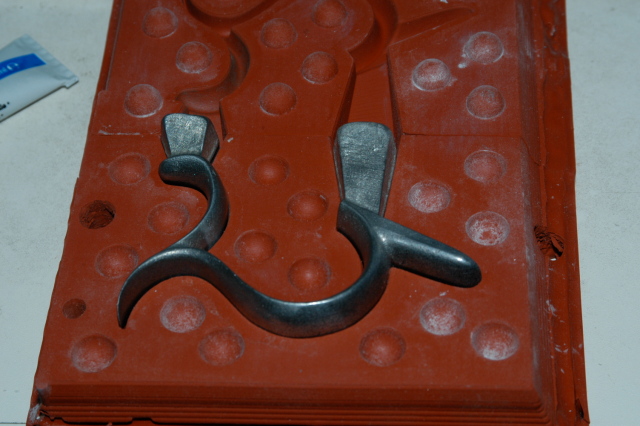Pastor Jedi
Well-Known Member
I would like to be able to make molds with castings made out of metal. Does anyone know how? I am not talking about going to a foundry and using wax or sand casts.
I take it you are wanting to know about cold casting?
Not sure.
I cast zinc items using hydrocal molds. .
I cast zinc items using hydrocal molds. Clearly, you can't have undercuts or the like, but for me it's been a non-issue. I haven't tried standard plaster of paris, but hydrocal can handle the high temps. The molds are reuseable, and due to metal shrinkage, you never have a problem with the cooled metal sticking to the plaster.

 I'm not religious, but I made this cross for my Mother and my GF's mother.
I'm not religious, but I made this cross for my Mother and my GF's mother.





